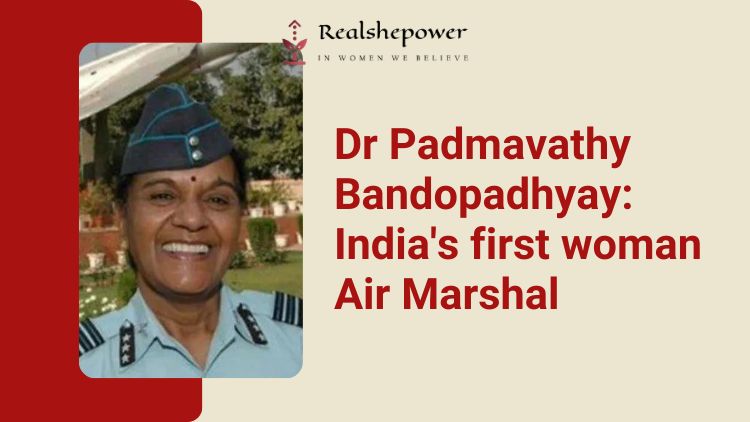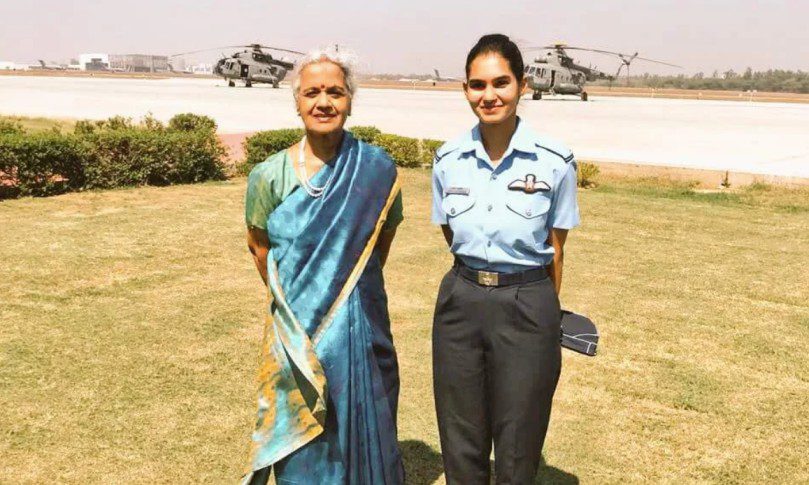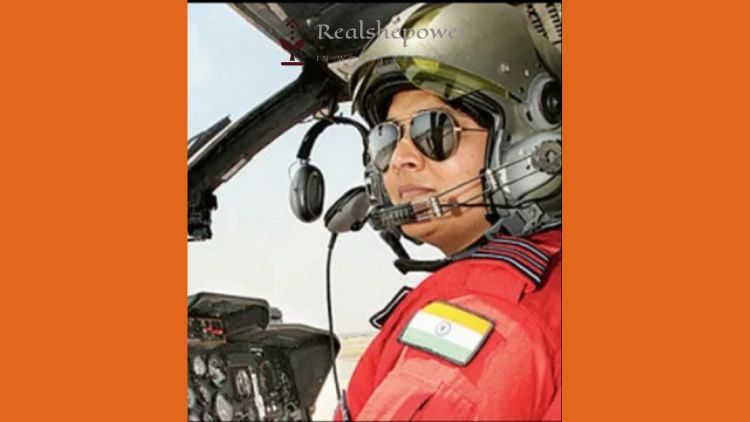The inspiring journey of Dr Padmavathy Bandopadhyay who was India’s first woman Air Marshal


Air Marshal Dr Padmavathy Bandopadhyay, born on 4 November 1944 is the first woman Air Marshal of the Indian Air Force. The first Indian woman to have conducted scientific research at the North Pole, and the first defence officer to receive a civilian award.
She joined the IAF in 1968, married to S. N. Bandopadhyay, a fellow air force officer. She was awarded the Vishisht Seva Medal (VSM) for her conduct during the Indo-Pakistani War of 1971. Sati Nath and Padma were the first IAF couple to receive a Presidents award in the same investiture parade.
Today, the retired officer continues to give her medical and education services to underprivileged children of Eastern Uttar Pradesh, which led the Indian Government to award her India’s highest civilian honour — the Padma Shri. Bandopadhyay is the first defence officer to receive a civilian award in India as armed forces are not eligible for civilian honours.
“I am humbled to receive this award. It’s very rare that a defence officer gets a civilian award, but I think this is not for the work of one or two days, but of the lifetime,” told Bandopadhyay to Deccan Chronicles.
Early Life
Padmavathy Bandopadhyay had a difficult childhood. Coming from a middle-class Tamil family from Tirupati, it wasn’t easy for Bandopadhyay to break the glass ceiling. At the age of three, she learnt to cope up with her ailing mother until the age of 13. Later the family shifted to Delhi where her mother was treated and put back on her feet. Here too, life was not all that easy. Bandopadhyay had only studied Tamil and Sanskrit in her childhood, learning Hindi and English in Delhi seemed a monumental task.
She recalls after 10th standard she decided to become a doctor, but every day she used to stand outside the classroom because she didn’t know English. Bandopadhyay luckily found a teacher from the college who taught her English, after which she topped medical exams and did excellent in the college too.
The Dream: Indian Armed Forces
In the 1960s when Bandopadhyay became a doctor, her male friends joined the Indian Army, which changed the course of her life.
“No boy came back after the war. That was the saddest part of my life — to see my own people leaving and never coming back — and then the song Aye Mere Watan Ke Logo came. I immediately told my father that I want to join the Indian Army. I didn’t even know the difference between the three armed forces then,” she said.

When Bandopadhyay successfully completed her training as a medical officer of the armed forces she was asked which force she would want to join, she chose Air Force.
“I thought I would fly a plane if I join the Air Force, so I said I want to do that. Later, I learnt that not everyone in the Air Force is a pilot,” she said.
Bandopadhyay Denies The Notion Of Inequality In Armed Forces
At a time when the entire country is rolling over discrimination towards women in defence forces, Bandopadhyay, despite facing initial challenges of no maternity leaves and any casual leaves, denies the notion of inequality.
“There is nothing like a woman and a man there. You are an officer. I was the first batch of women to join the armed forces, there was no provision for maternity leaves, but I have managed my deliveries and children. Everything takes time to change,” she says, adding that one needs to prove the capabilities to be able to earn respect in forces. The former officer recalls an instance where male officers would not tell her their medical issues and at times they were rude too.
“Then my husband asked me to fly with them and I did that. It made a lot of difference, they were comfortable with me. When you wear the uniform you are an officer and not a man or a woman” she concludes.
Also Read: Wing Commander Deepika Misra Saved 47 Lives

You can now write for RSP Magazine and be a part of the community. Share your stories and opinions with us here.
